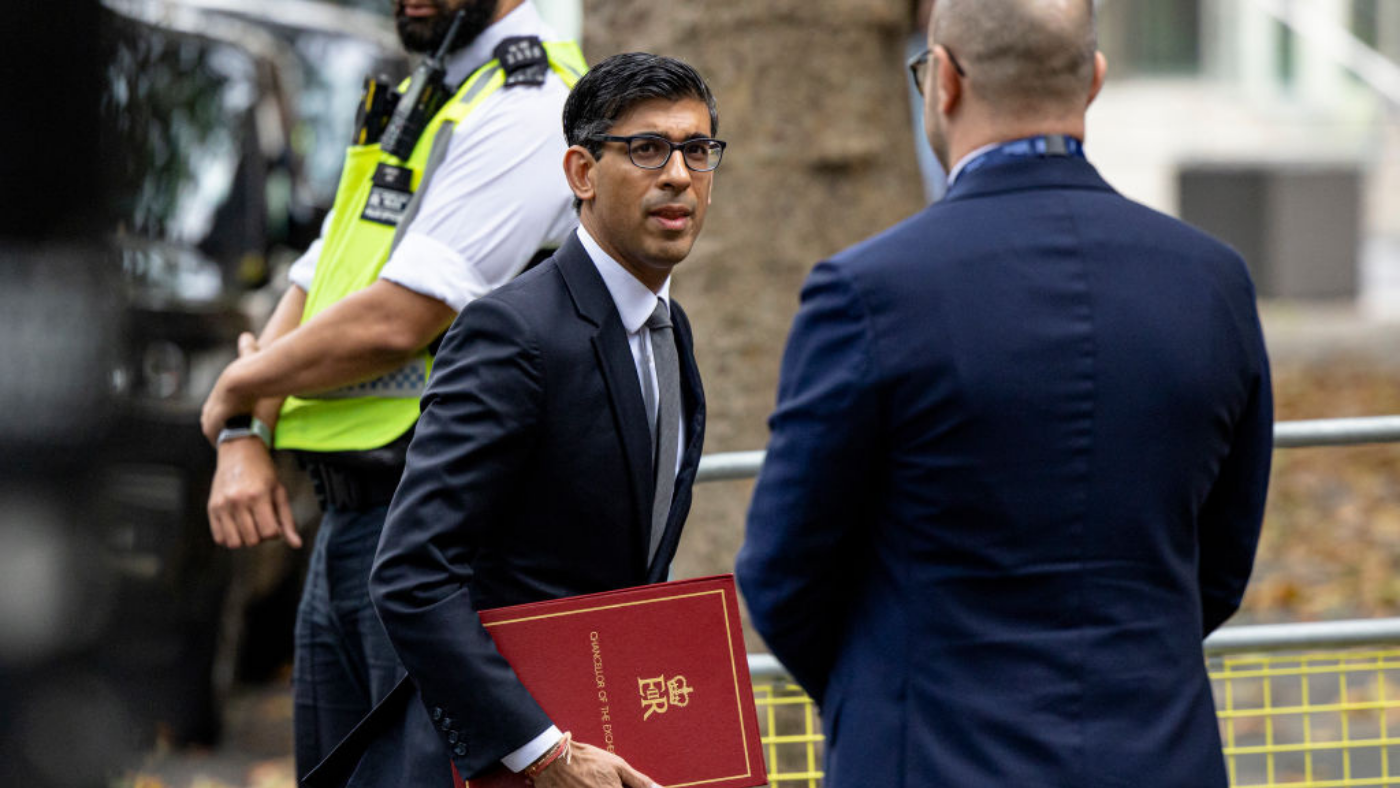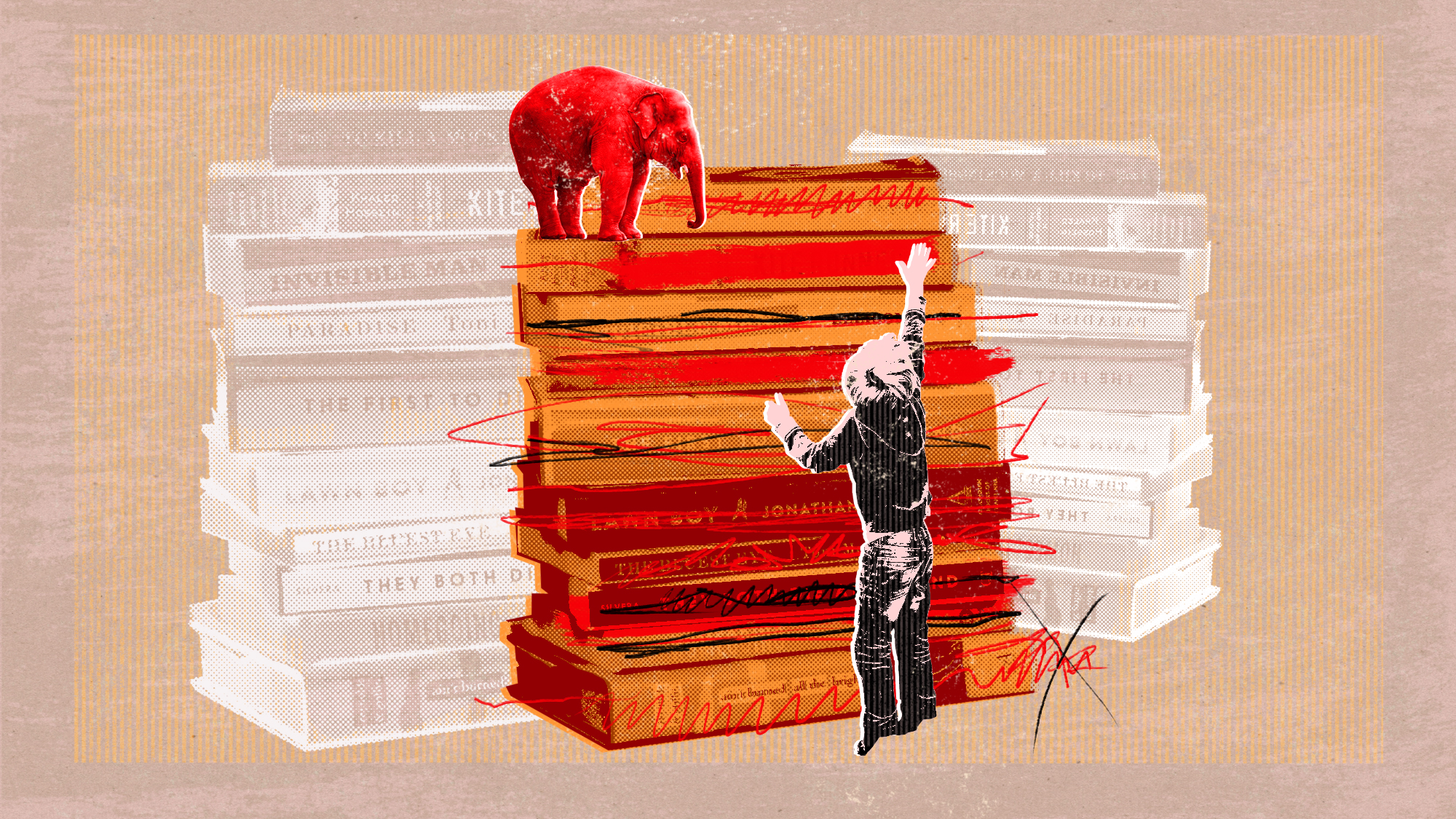Rishi Sunak’s voting record examined
As the youngest UK prime minister in modern history takes power, what can we learn from his previous votes?

A free daily email with the biggest news stories of the day – and the best features from TheWeek.com
You are now subscribed
Your newsletter sign-up was successful
Rishi Sunak’s ascension to the top job in British politics, without a leadership contest, has thrown up more questions than answers when it comes to how he will govern.
Sunak’s first speech in front of Downing Street ticked off all the main areas a Conservative prime minister would look to address: a “stronger NHS, better schools, safer streets, control of our borders”.
He then went on to “deliver some of the frankness for which MPs chose him”, said Bloomberg’s Allegra Stratton. He said that “some mistakes were made” by his predecessor Liz Truss and that part of his job is “to fix them”.
The Week
Escape your echo chamber. Get the facts behind the news, plus analysis from multiple perspectives.

Sign up for The Week's Free Newsletters
From our morning news briefing to a weekly Good News Newsletter, get the best of The Week delivered directly to your inbox.
From our morning news briefing to a weekly Good News Newsletter, get the best of The Week delivered directly to your inbox.
Though “a less outwardly ideological figure than Truss”, said The New Statesman’s George Eaton, the country’s youngest PM in modern times is actually “far from a pragmatic centrist” and his appointment represents “a triumph for the Conservatives’ Thatcherite wing”.
Sunak has repeatedly preached unity, and when addressing Tory MPs he reportedly told them he would “focus on policies, not personalities”. “It’s not entirely clear what those policies will be, however,” said Vox.
One thing that may provide a guide is Sunak’s voting history in his seven years as an MP.
Tax and business
Sunak has voted to raise the threshold at which people start to pay income tax, and consistently voted to reduce the rate at which businesses pay corporation tax, according to TheyWorkForYou – which calculates the overall stance of MPs based on data from The Public Whip website. He has a mixed record on measures to reduce tax avoidance and has consistently voted for a reduction in spending on welfare benefits. He has consistently voted against paying higher benefits over longer periods for those unable to work due to illness or disability. Sunak has also consistently voted against higher taxes on banks.
A free daily email with the biggest news stories of the day – and the best features from TheWeek.com
Despite consistently voting to keep taxes low, as chancellor Sunak oversaw plans to raise the tax burden to a 70-year high, introducing a 1.25% hike in National Insurance contributions and raising corporation tax from 19% to 25%. While he has said he does not plan to bring down the tax burden as quickly as Truss, he did say it is a matter of “when, not if”, reported The Telegraph.
Foreign affairs
Sunak has voted for the use of military forces in combat operations overseas, backing UK airstrikes against Isis in Syria in 2015.
On Ukraine, Sunak told The Sun in July that his first foreign trip as prime minister would be to Kyiv, vowing to “reinforce our policy of total support for Ukraine that Boris has so ably led”.
He said to the people of Ukraine that he “won’t hesitate to provide you with any further support you require as you move into a new phase of the conflict, in which your goal is not simply to resist Russian advances but to reverse them and reconstruct”.
Environment
Sunak has “almost always” voted against measures which seek to prevent climate change. He voted against financial incentives for low carbon emission electricity generation methods in 2018, thus reducing support for former coal power stations running wholly or in part on biomass such as wood or other plant material.
Boris Johnson’s net zero plans became a “bone of contention” among Tory backbenchers, with whom Sunak remains “closely connected”, said Politico last October. A member of the Net Zero Scrutiny Group, led by MP Craig Mackinlay, “said he felt it had Sunak’s ear”.
“The trouble with net zero is it’s a lot of rich people telling poor people how to live their lives – I think the Treasury understands that,” said the unnamed parliamentarian at the time.
Europe
Unlike Truss, Sunak voted to leave the European Union and was among Conservatives supporting a no-deal exit from the bloc in April 2019. Over his parliamentary career, he has generally voted against more European integration.
But despite voting to leave the EU in 2016, he has found himself “vulnerable to right-wing attacks” on Brexit, with many Brexiteer backbenchers fearing he would “blink at the prospect of a damaging trade war with the EU, should relations deteriorate further in the months ahead”, said Politico.
Social issues and home affairs
In 2016 Sunak voted in favour of repealing the 1998 Human Rights Act. He has also been absent for votes on same-sex marriage and equal gay rights.
On issues concerning immigration, he has almost always voted for a stricter asylum system and stronger enforcement of immigration rules. A spokesperson for the former chancellor told The Times over the summer that he still supported plans to send migrants to Rwanda, despite remaining silent on the topic since launching his leadership campaign.
“Rishi signed off and funded the Asylum Partnership Agreement with Rwanda, and now he just wants to make sure that it works. Rishi is proud to be from a family of immigrants but believes that the UK must have control of its borders,” said the spokesperson.
Health and education
Sunak did vote in favour of NHS reforms that mean GPs can buy services on behalf of their patients. He has never voted on allowing terminally ill people to be given assistance to end their life. On education, he has consistently voted in favour of turning all primary and secondary schools in England into academies, shifting control over them from local councils to central government.
Women’s issues
During the leadership contest with Truss, Sunak claimed to have made women’s rights a priority and tweeted to this effect: “If I become Prime Minister I will protect women’s rights and ensure women and girls enjoy the same freedom most males take for granted in feeling safe from assault and abuse.” While this was an “admirable sentiment”, according to Glamour, “many felt his commitment to women’s rights was greatly undermined by his stance that transgender women aren’t women”.
When it comes to abortion rights, Sunak has generally abstained on votes relating to all matters of reproductive healthcare - including on the recent amendment to introduce buffer zones around reproductive healthcare clinics in the UK.
In 2021, Sunak was criticised for his implementation of the Covid-19 self-employment payments scheme by Mandu Reid, leader of the Women’s Equality Party, who told the i news site that he was equating maternity leave “with taking a holiday or sabbatical”.
-
 The ‘ravenous’ demand for Cornish minerals
The ‘ravenous’ demand for Cornish mineralsUnder the Radar Growing need for critical minerals to power tech has intensified ‘appetite’ for lithium, which could be a ‘huge boon’ for local economy
-
 Why are election experts taking Trump’s midterm threats seriously?
Why are election experts taking Trump’s midterm threats seriously?IN THE SPOTLIGHT As the president muses about polling place deployments and a centralized electoral system aimed at one-party control, lawmakers are taking this administration at its word
-
 ‘Restaurateurs have become millionaires’
‘Restaurateurs have become millionaires’Instant Opinion Opinion, comment and editorials of the day
-
 How corrupt is the UK?
How corrupt is the UK?The Explainer Decline in standards ‘risks becoming a defining feature of our political culture’ as Britain falls to lowest ever score on global index
-
 The high street: Britain’s next political battleground?
The high street: Britain’s next political battleground?In the Spotlight Mass closure of shops and influx of organised crime are fuelling voter anger, and offer an opening for Reform UK
-
 The MAGA civil war takes center stage at the Turning Point USA conference
The MAGA civil war takes center stage at the Turning Point USA conferenceIN THE SPOTLIGHT ‘Americafest 2025’ was a who’s who of right-wing heavyweights eager to settle scores and lay claim to the future of MAGA
-
 Is a Reform-Tory pact becoming more likely?
Is a Reform-Tory pact becoming more likely?Today’s Big Question Nigel Farage’s party is ahead in the polls but still falls well short of a Commons majority, while Conservatives are still losing MPs to Reform
-
 What does the fall in net migration mean for the UK?
What does the fall in net migration mean for the UK?Today’s Big Question With Labour and the Tories trying to ‘claim credit’ for lower figures, the ‘underlying picture is far less clear-cut’
-
 Five takeaways from Plaid Cymru’s historic Caerphilly by-election win
Five takeaways from Plaid Cymru’s historic Caerphilly by-election winThe Explainer The ‘big beasts’ were ‘humbled’ but there was disappointment for second-placed Reform too
-
 The new age of book banning
The new age of book banningThe Explainer How America’s culture wars collided with parents and legislators who want to keep their kids away from ‘dangerous’ ideas
-
 Taking the low road: why the SNP is still standing strong
Taking the low road: why the SNP is still standing strongTalking Point Party is on track for a fifth consecutive victory in May’s Holyrood election, despite controversies and plummeting support